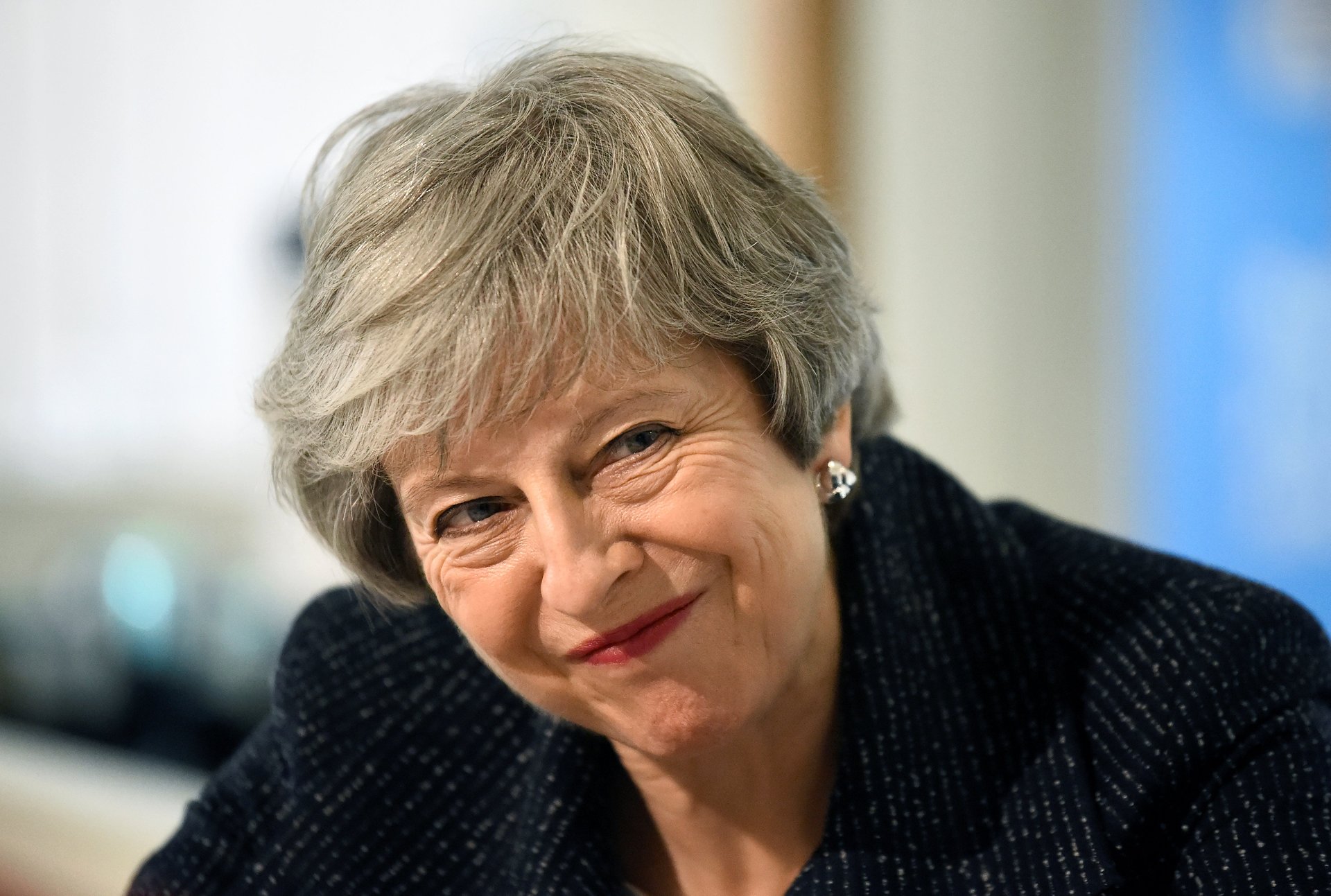Theresa May’s crushing defeat inches Britain closer to a “no-deal” Brexit
With only two weeks to go until the UK’s scheduled departure from the EU, the country’s parliament today once again rejected prime minister Theresa May’s proposed Brexit deal, this time by 149 votes.


With only two weeks to go until the UK’s scheduled departure from the EU, the country’s parliament today once again rejected prime minister Theresa May’s proposed Brexit deal, this time by 149 votes.
It was a dismal defeat for the prime minister, who has spent weeks trying to extract concessions from the EU on her deal after it was voted down by a historic margin of 230 votes by parliament in January.
MPs will now vote tomorrow (March 13) on whether they want to take the prospect of exiting the bloc without a deal off the table. If that passes—which is likely, given the immense economic damage a “no-deal Brexit” could cause—they will vote Thursday (March 14) on whether to delay Brexit and continue negotiations with the EU. A delay would require approval from EU leaders, and could range from a few weeks to several months or even longer.
A longer delay could fundamentally change the Brexit outcome, raising the prospect of another referendum vote on whether to leave the EU, as the opposition Labour party supports, or even an election. It would not eliminate the prospect of the UK leaving without a deal.
“Voting against leaving without a deal, and for an extension, does not solve the problems we face,” May told MPs, her voice audibly cracking from a sore throat. “The EU will want to know what use we wish to make of such an extension,” including what a delay would look like, or whether a second referendum on Brexit should be held. This suggestion was met with a loud chorus of ayes and noes from politicians, as well as a call from opposition leader Jeremy Corbyn for a general election.
The last-minute concessions extracted by May from the EU didn’t prove enough to win over MPs. The biggest roadblock to winning support for her deal has been the Irish “backstop,” which seeks to avoid a hard border between Ireland, an EU member state, and Northern Ireland, which would leave the bloc after Brexit. Following a last-ditch negotiating effort with a resistant EU, May announced “meaningful legal assurances” that the UK would not be trapped in an indefinite customs union with the EU to avoid the hard border.
Ahead of the vote, however, Geoffrey Cox, the UK’s attorney general, said while the assurances secured by May reduced the UK’s legal risks of being stuck in the backstop, they did not eliminate them.
Should a delay to Brexit be approved, May could try going back to the EU to continue negotiating, though European Commission president Jean-Claude Juncker has warned there would be no “third chance” for a deal. This will only likely add to the mental stress many are feeling after two years of negotiations over Brexit, with no end in sight.